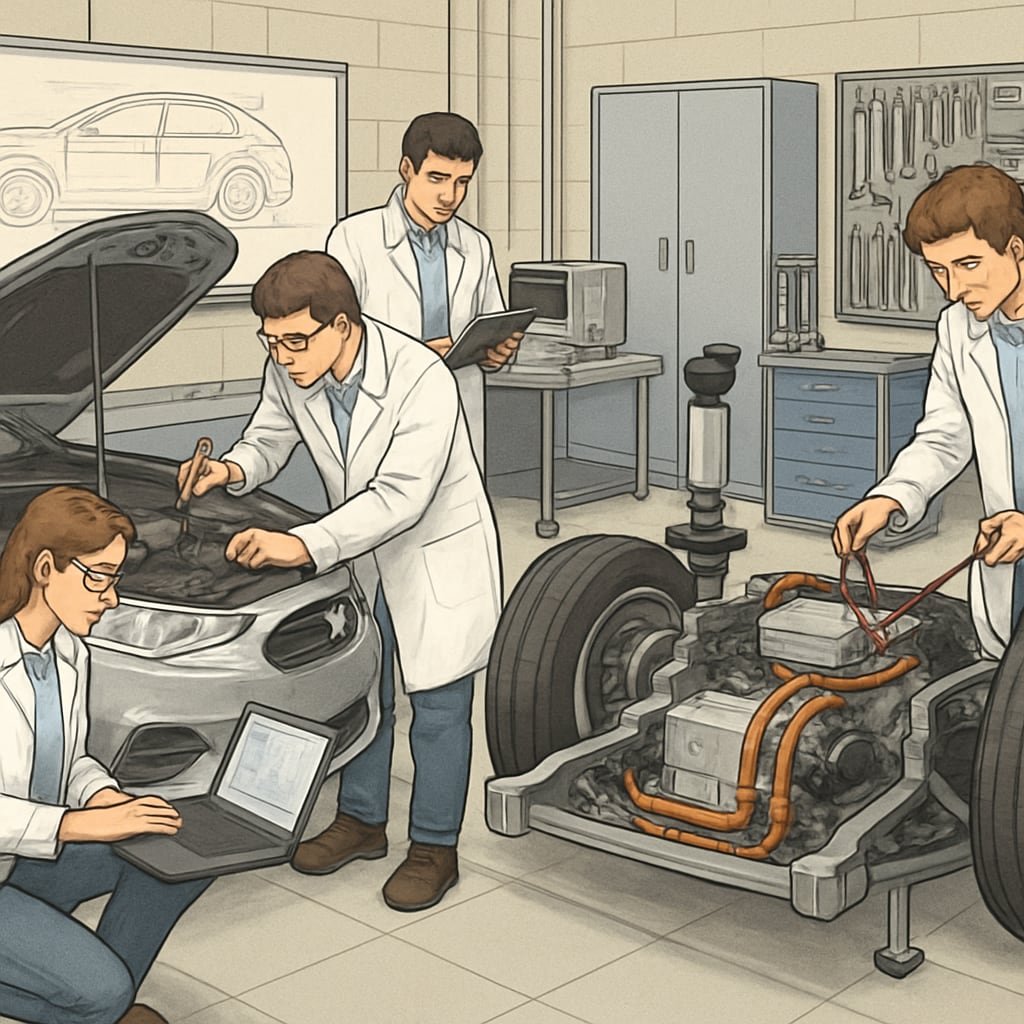Military personnel with an associate degree in automotive technology often face the challenge of selecting a compatible bachelor’s degree to advance their education and career. With the right strategies for credit transfer and degree selection, transitioning to a bachelor’s program can unlock numerous opportunities in the automotive industry or related fields. This guide explores how to maximize existing credits, choose compatible majors, and leverage educational benefits to create a seamless transition.
Understanding Credit Transfer Strategies
One of the first steps in transitioning from an associate degree in automotive technology to a bachelor’s degree is evaluating credit transfer options. Many universities and colleges offer programs designed to accept credits from associate degrees, especially in technical fields such as automotive technology. These programs aim to reduce redundancy and ensure that previously earned credits count toward the bachelor’s program requirements.
When exploring credit transfer opportunities, military personnel should consider schools that have established articulation agreements with community colleges or technical institutions. These agreements outline the specific credits that will transfer and guarantee a smooth progression to upper-level coursework. For example, some universities provide “2+2 programs,” allowing students to complete two years of associate-level coursework followed by two years of bachelor’s-level coursework.
- Research universities with articulation agreements in automotive or technical fields.
- Verify accreditation to ensure credits will transfer seamlessly.
- Consult with academic advisors to evaluate transferable credits.

Choosing Compatible Bachelor’s Degree Programs
Military personnel with an automotive technology associate degree have several bachelor’s degree options that align with their technical background. The most compatible programs typically fall within engineering, technical management, or industrial technology fields. These majors build upon the foundational knowledge gained in automotive technology while introducing advanced concepts and skills.
Popular bachelor’s degree options include:
- Automotive Engineering Technology: This program focuses on designing, testing, and manufacturing automotive systems, making it ideal for those looking to deepen their expertise in automotive innovation.
- Mechanical Engineering: While broader in scope, mechanical engineering offers strong overlap with automotive technology, providing opportunities in various industries.
- Industrial Technology Management: This major emphasizes leadership and operational efficiency, preparing graduates for management roles in technical fields.
- Business Administration: For those aiming to transition into corporate settings or entrepreneurial ventures, this degree provides skills in finance, marketing, and organizational management.
Each of these programs offers unique advantages depending on career aspirations. Automotive engineering and mechanical engineering are ideal for technical roles, while business administration or industrial management cater to those interested in leadership positions.

Leveraging Military Educational Benefits
Military personnel have access to a range of educational benefits that can facilitate their transition to a bachelor’s program. The Post-9/11 GI Bill, for example, covers tuition costs, housing allowances, and even supplies for eligible military members. Additionally, the Department of Defense Tuition Assistance Program provides financial support for active-duty members pursuing higher education.
To maximize these benefits, military personnel should:
- Check eligibility requirements for the GI Bill and Tuition Assistance.
- Apply for scholarships specific to veterans or active-duty members.
- Explore online and hybrid programs that offer flexibility for military schedules.
Many universities also provide dedicated support services for military students, including academic advising, counseling, and networking opportunities. These resources can help ensure a smooth transition and provide guidance throughout the educational journey.
Career Opportunities After a Bachelor’s Degree
Earning a bachelor’s degree significantly expands career prospects for individuals with an automotive technology background. Graduates can pursue roles in advanced automotive design, manufacturing, and consulting. Furthermore, those who complete degrees in business or industrial technology management may qualify for leadership positions such as operations manager or project director.
According to the U.S. Bureau of Labor Statistics, careers in engineering and automotive design are expected to grow steadily, driven by advancements in electric and autonomous vehicle technology. Additionally, management roles in technical industries often command higher salaries and provide opportunities for professional growth.
For military personnel, the combination of technical skills from an associate degree and leadership experience gained during service makes them highly competitive candidates in the job market.
Conclusion: Transitioning from an associate degree in automotive technology to a bachelor’s degree is a strategic move for military personnel looking to advance their education and career. With proper planning, credit transfer strategies, and utilization of military benefits, this transition can lead to rewarding opportunities in the automotive industry and beyond.


